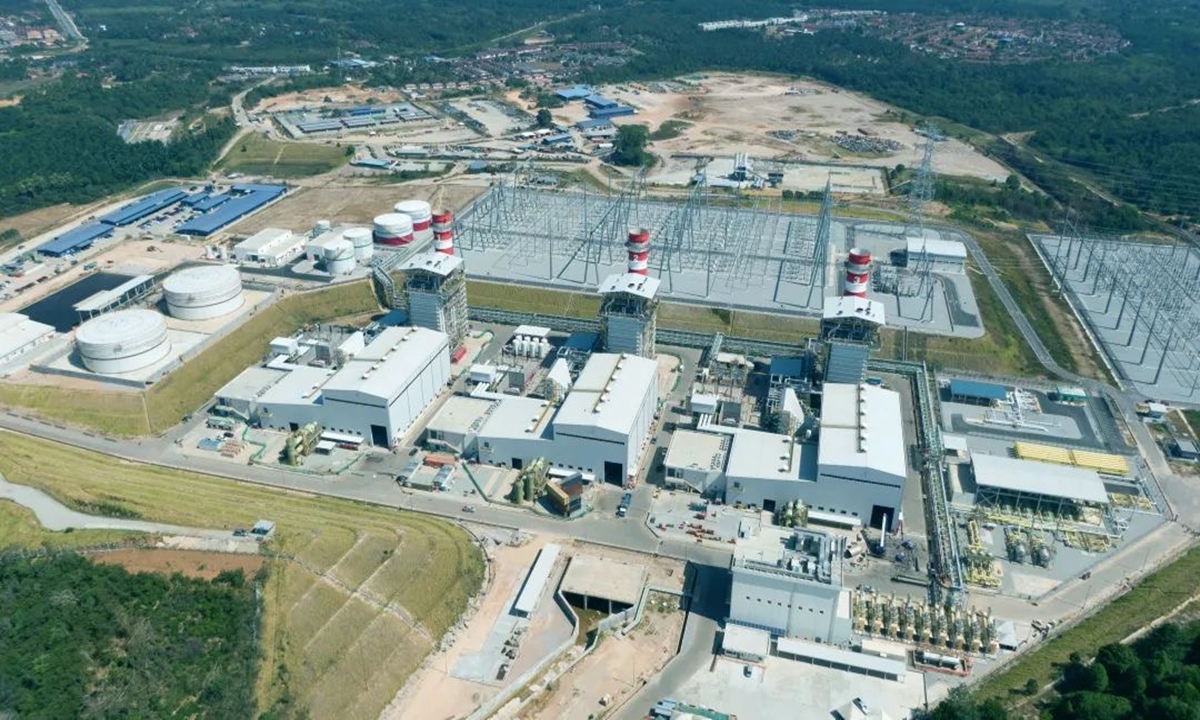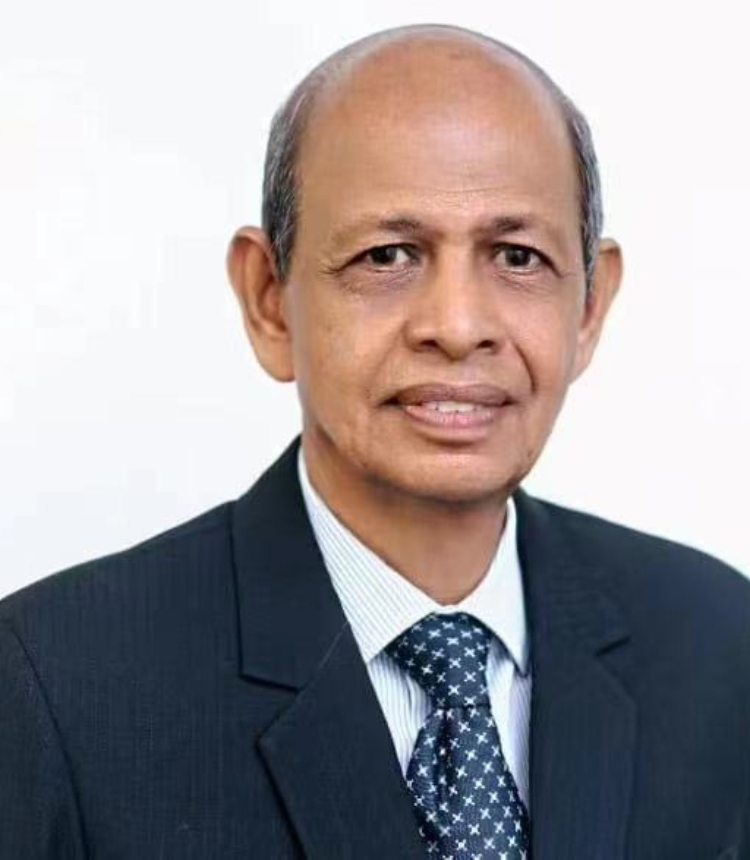
The gas-fired Edra Melaka Power Plant (EMPP) in Malaysia built by China General Nuclear Power Corp Photo: CGN
Noting that bilateral relations are at their historical best, former Malaysian ambassador to China Dato Abdul Majid said he hopes that China can cultivate more talent for Malaysia via high-quality Belt and Road Initiative (BRI) cooperation so as to further promote Malaysia-China ties in the next 50 years, in a recent interview with the Global Times in Kuala Lumpur.
Majid stressed that Malaysia is one of the earliest countries to support the BRI, and multiple Malaysian prime ministers have been very supportive in the past three BRI summits held in Beijing.
In the eyes of Majid who served in China for a total of 12 years, China is very strong in industrialization and many countries are expecting vocational training via working with China. "I think many countries require this. Malaysia also needs it because we are now reaching a certain level of industrialization. We need a lot of training for talented people at a sub-professional level. I think China can offer this, and I think this could be part of the BRI."
The veteran diplomat said that in the early stages, there was some confusion among local Malaysians as large swaths of land seized by Chinese companies caused concern. But they have learned that not only does China boost the domestic market, it also creates employment, so people have started to get past their early misconceptions about China. Also, local people realized that they were not fully utilizing local resources, labor and raw materials, said Majid.

Photo: Former Malaysian ambassador to China Dato Abdul Majid
The former ambassador noted that all the Chinese factories coming to Malaysia have improved their operations, bringing positive effects for local people. He cited the example of the China-built East Coast Rail Link (ECRL), saying that it has linked four very underdeveloped areas and now serves as an economic corridor.
"I am happy to see that the project is moving fast now. Once it gets completed, the traffic flow will be easier for people from the West coast to the East, which used to take seven to eight hours," he said.
The ECRL project is a catalyst that can balance the economy of the East Coast with the West Coast because the rail infrastructure can stimulate investment and commercial activities, offer job opportunities and boost the tourism sector and the manufacturing sector in the states of the East Coast Economic Region, Malaysian Prime Minister Anwar Ibrahim said at the launch of the construction of the railway's first station in Kelantan state in May, the Xinhua News Agency reported.
The Friends of the Silk Road club, organized by the Majid-chaired Malaysia-China Friendship Association, was invited to the construction line with local media, NGOs and residents in March to inspect the landmark Belt and Road project. "We find the environmental assessment is also doing well; it minimizes the impact on local ecology," Majid told the Global Times.
Majid said that Ibrahim's "Malaysia Madani" - a policy framework that focuses on good governance and sustainable development - chimes with the China-proposed Global Civilization Initiative and the idea of a community with a shared future.
This year marks the 10th anniversary of the establishment of the China-Malaysia comprehensive strategic partnership, and next year will mark the 50th anniversary of the establishment of diplomatic ties between the two countries. Earlier this year, Ibrahim paid a successful visit to China and reached a consensus with Chinese leaders on building a China-Malaysia community of a shared future.
The current bilateral ties are "very healthy and very substantive in terms of cooperation," Majid said.
"We have established a very strong foundation. We have created trust between the two countries. Before, we probably got about 4 million Chinese here in terms of tourists, students, business, people. We hope with the re-opening of China's border, it can go back to the pre-COVID time," said Majid, noting that he expects the relationship can be extended to a higher level.
As the longest-serving Malaysian ambassador to China, Majid deeply appreciates the rapid process of modernization in China since 1981. He has witnessed how China has transitioned from having old and slow trains to becoming the leading country in high-speed rail services.
"But the most important thing is people's lives - the colors of China have changed from predominantly blue or gray to being so colorful today," he said.
When discussing the impressions of young Malaysians toward China, Majid emphasizes a division between them - there is a group of young people who have trade relations with China and have visited the country, so they are familiar with China and have a more positive and optimistic perception. "On the other hand, there is another group who have never been to China and are more inclined toward Western values due to colonial history, so they do not have a true understanding of the real China."
Majid also hopes for more opportunities for communication to allow these people to see an objective and authentic China in order to eliminate misunderstandings. This is also what the Malaysia-China Friendship Association is working toward.
"Now we want to expose our member students to three things - China's rich culture, China's changes, and the modernization of China. Because in earlier times, there were a lot of misconceptions that China is still in the '80s or 70s'. Our focus is to show the real China," Majid said.
"It's important for the younger generation to understand the harmony and understanding between different civilizations and different economic systems," Majid said. "Because I think we cannot deny China is going to play a big role. China has done very well, and we truly need to learn from it."





